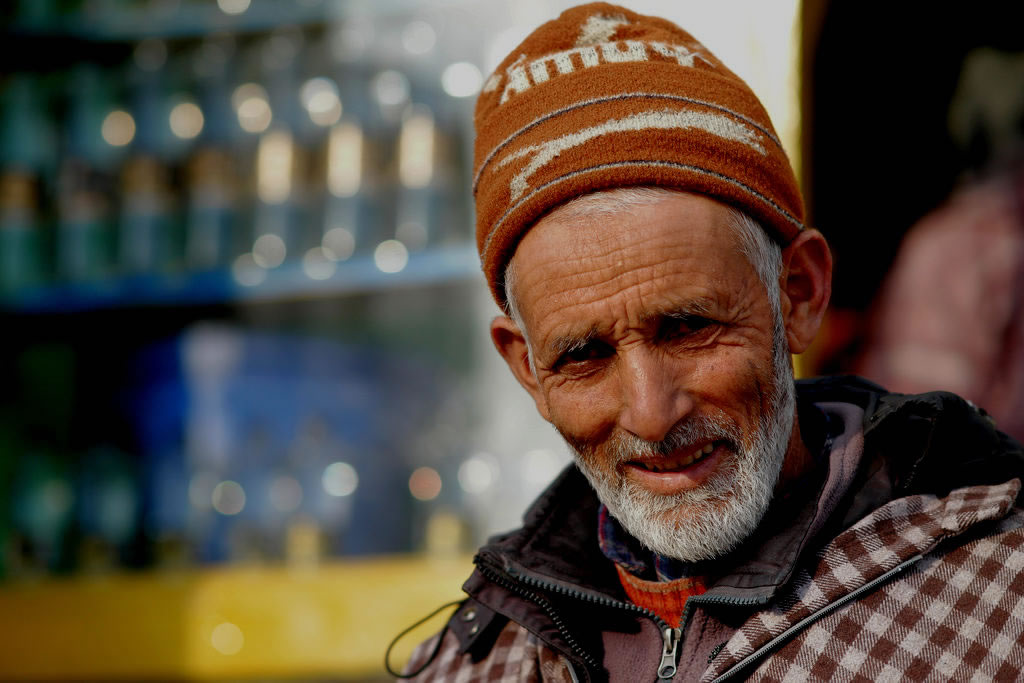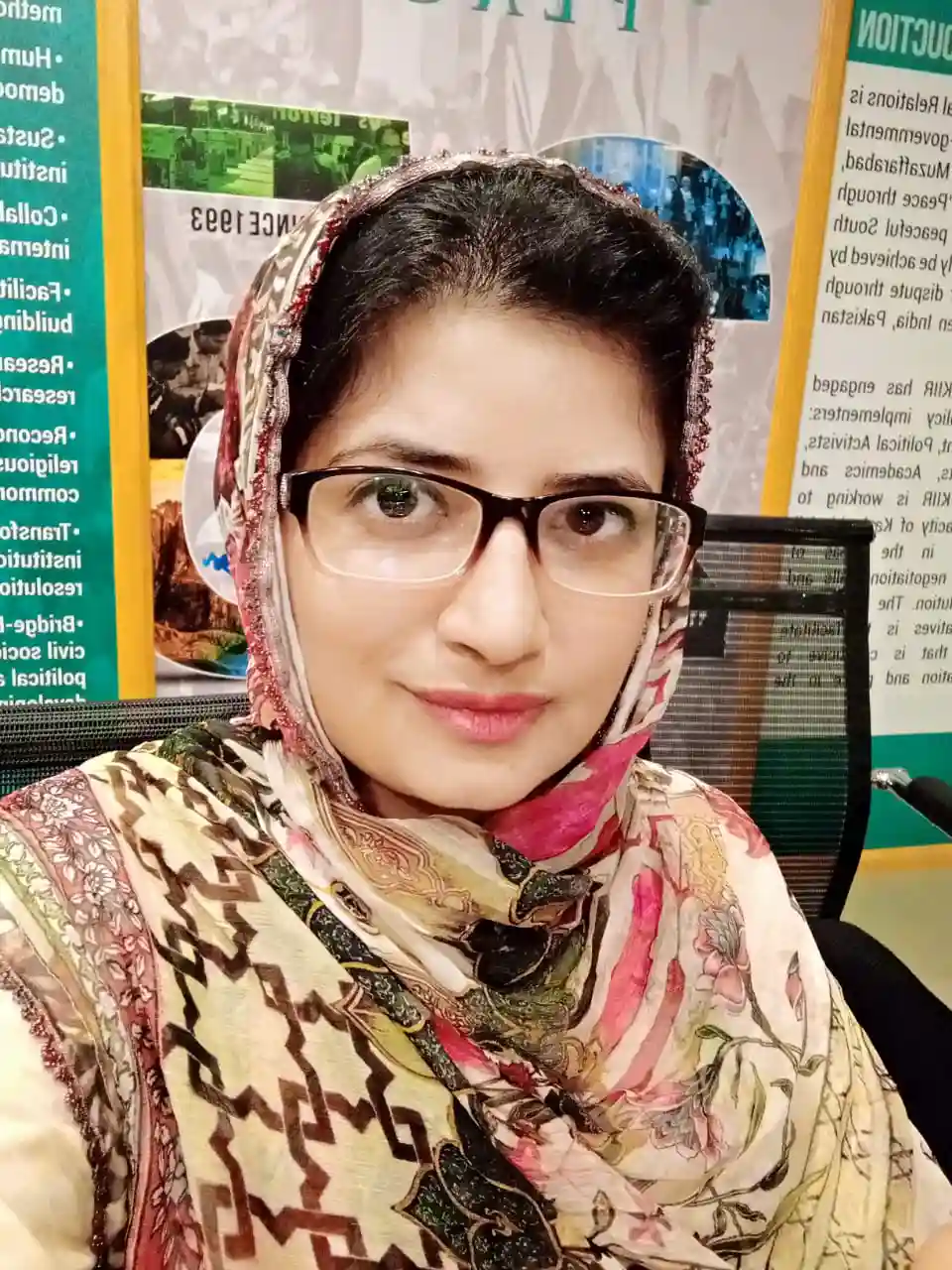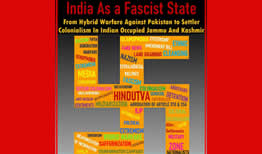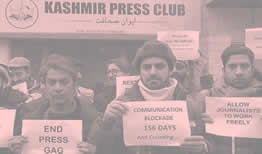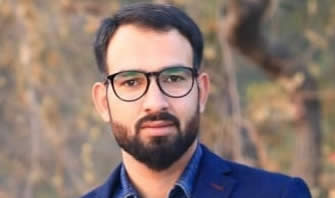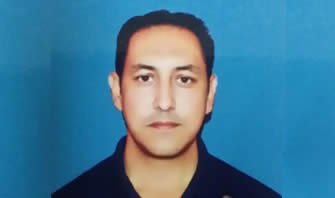Diplomatic Dynamics: India, Pakistan and United Nations
Diplomatic Dynamics: India, Pakistan and United Nations
Abstract
This research paper addresses the tactics employed by India to gain international support in the Kashmir issue. This study examines the United Nations' role in peacefully resolving the Kashmir issue and, addresses the challenges faced by the UN in balancing the “principles of state sovereignty” and the “self-determination of the individuals of Illegally Indian Occupied Jammu and Kashmir” and the “Human Rights Advocacy”. India asserts its illegal occupation over the territory of IIOK and, addresses this as a domestic issue rather than to be discussed on the international level. Due to the Kashmir issue, several questions have been raised on the effectiveness and credibility of the United Nations.
By Isbah Aleem
International Relations Air University Islamabad
The
methodology adopted is the qualitative analysis of historical documents, United
Nations resolutions, and diplomatic communications, the strategies used by
India were examined. The analysis also includes scholarly articles to
investigate how India portrays the Kashmir issue, on an international level.
This research is grounded in the realism theory, which discusses the power and
national interest, how India has established its narrative on the Kashmir
issue, and how India has gained international support for the Kashmir issue.
This study also examines how India’s alliances and media influence have
impacted the global perception of the Kashmir conflict.
Keywords:
India,
Indian Occupied Jammu and Kashmir, Pakistan, Tactics, UN Resolution
Introduction:
The
Kashmir dispute is a regional dispute largely involving India and Pakistan. The
dispute is the oldest unresolved international conflict in South Asia. Kashmir
is known for its geopolitical location and is rich in natural resources.
Indians' illegal occupation of the territory of Jammu and Kashmir in 1947 is
the main cause of this dispute.
Currently, Pakistan governs the western and northern parts on the other
hand India governs the Southern and eastern parts. This dispute began in 1947,
when India and Pakistan claimed the territory of Jammu and Kashmir. The
relationship between India and Pakistan is currently at a very high diplomatic
point. The struggle against Indian rule remains a major political issue in
Illegally Indian Occupied Kashmir and Pakistan continues to support IIOK’s
people's freedom.
After
the Independence, when the escalation increased in Illegally Indian Occupied
Jammu and Kashmir, India and Pakistan waged the first Indo-Pak War 1947-48.
During this war, Indians were the first to involve the United Nations on 1st
January 1947, in Kashmir Conflict. The UN helped to impose a ceasefire between
Pakistan and India, which is the Line of Control. It was a mutual agreement
between Pakistan and India that the United Nations Security Council and UN
Commission for India and Pakistan passed several resolutions during this
Indo-Pak war 1947-48. Although the United Nations has passed several
resolutions and signed agreements to resolve the Kashmir issue, they are still
unresolved.
The
Indian government has employed several tactics to gain international support to
support its stance on the Kashmir issue. India has cherished strategic
partnerships with superpowers like the US, Russia, and the UK. This
relationship has helped India to secure its stance on the Kashmir issue. India
as a developing state, has tied hands with developing economies such as Saudi
Arabia and the United Arab Emirates and has effectively used Bollywood media to
shape the narrative of Indian-occupied Jammu and Kashmir as a vital part of
India. India entangles Pakistan as a supporter of terrorism and addresses the
fact that Pakistan wanted to annex IIOK, which is its integral territory.
Historical
events like the signing of the Instrument of Accession and the United
Resolution have played a crucial role in shaping the current status of
Illegally Indian Occupied Kashmir. On 13th August 1948, the UN called for a
ceasefire and evacuation of troops. Indian government failed to adopt the
standard of plebiscite set by the United Resolution. Kashmiris has been facing
Human Rights violations, since 1989, which has now worsened the situation.
United Nations has timely addressed the Kashmir Issue but, still, no practical
action has been taken, and has faced numerous challenges in balancing the
principles of state sovereignty for India and the self-determination for the
people of Illegally Indian Occupied Jammu and Kashmir. Encouraging, the locals
of IIOK in their struggle for self-determination, while upholding their state
sovereignty. UN’s engagement in recent years has been focused on Human Rights
violations rather than, supporting locals of IIOK to self-determination. UN
prefers state sovereignty over self-determination, this strategy has limited
the UN’s involvement in the Kashmir issue.
The
significance of this study is to analyze the strategies used by India to gain
International support for the perspective of the Kashmir Conflict. This will
address the Resolutions passed by the UN and the signing of the Instrument of
Accession that has shaped the current situation of the Kashmir Conflict. This
will address the challenges faced by the UN in balancing the principles of
self-determination and state sovereignty in the Kashmir Conflict and how this
balance affected the UN’s role in the region.
Tactics employed by
India to gain International Support for its position on the Kashmir Issue:
Tactics
are the means or strategies nations use to achieve a specific goal, short-term
objectives, or overcome an immediate problem. Nations employ techniques to
achieve particular goals or to handle different challenges. In a conflict
scenario, they might launch surprise attacks, like Israel has in Gaza.
Diplomatically, they can impose sanctions on their adversary, like in 1979 when
the United States imposed sanctions on Iran, and using social media platforms
to convey their message, like in 2016 Russia used a disinformation campaign in
US presidential elections. The tactics chosen depend on the nation's goals and
the issue with which they seek to cope.
Likewise, after the 9/11 incident, India has
been using numerous tactics to strengthen its stance over the Kashmir Conflict.
India wants to portray itself as a combatant against terrorism and as a
defender of national integrity and has been actively engaging in bilateral
talks with global powers. With Nations like Russia, the United States, and the
European Nations, the Indian Prime Minister, carries out high-level visits,
state dinners, and bilateral discussions. It has deepened its relations with
these global powers to gain support for its position in the Kashmir conflict.
India’s
growing economy has played a significant role in gaining international support
in the Kashmir Conflict. By offering trade and investment opportunities to
countries like Japan, the United Arab Emirates, and the European Union, India
has gained International support. Giving trade advantages to countries globally
has influenced their policies in their favour. India has a free trade agreement
with four of its trading partners i.e. Singapore, the United Arab Emirates,
Korea, and Indonesia (as a part of the Asian bloc). Countries with strong economic relations with
India are more likely to support India on International platforms in the
Kashmir Conflict. India has developed agreements and technological exchanges,
as a part of its strategic partnership which helps India to secure its position
in the Kashmir Conflict.
India
has heavily invested in global public opinion through articles, interviews,
generals, and media platforms. Hundreds of videos have appeared on TikTok and
YouTube addressing Modi’s “Brave Gesture”. India portrays itself as a secular
and democratic state while using Bollywood films such as “Article 370” and “The
Kashmir Flies” to influence its culture. Social Media platforms, Instagram,
YouTube, TikTok, and Twitter have been used to promote India’s narrative on
Illegally Indian Occupied Jammu and Kashmir, which is focused on presenting
Pakistanis as supporters of terrorism. The Indian Diaspora in the UK, US, and
Canada have been prepared to support India in this Conflict. These diaspora
organizations and influential individuals engage with government officials to
represent India’s stance. Indian soft power is the most effective tool against
Pakistan, to maintain its position internationally in Kashmir Conflict.
Indian
government promotes development initiatives like infrastructure projects, and
economic developments in Illegally Indian Occupied Kashmir, and seeks to gain
international support. Indian Prime
Minister, Modi argued that He would enhance industrial prosperity, eliminate
corruption, and abolish gender, caste, and religious intolerance in Illegally
Indian Occupied Jammu and Kashmir (IIOK), and he just delivered secessionism,
terrorism, favoritism, and rampant corruption on a vast scale. He proposed that
by tightening the relationship with India, new job opportunities will be
provided and more governmental scholarships are on the way for the students of
Illegally Indian Occupied Kashmir. By using these tactics India portrays itself
as a provider of development and stability.
International states recognized the abrogation
of Article 370, on 5th August 2019, as India’s legal integral matter. Indian
government argued that this move was necessary for the full integration of IIOK
in India. They present this as a step
towards development and peace in IIOK. Globally, Pakistan is considered an
aggressor in Kashmir and the root of most of the problems in the region. For
India, this was a diplomatic win. Though how the constitutional changes were
implemented in IIOK, India has faced criticism internationally against its
flawed management. Internationally, it is considered a disputed region and no
country recognizes Illegally Indian Occupied Jammu and Kashmir as a part of
Indian Territory, except Bhutan.
In
response to the Human Rights Violation in IIOK, the Indian military changed its
operation in the IIOK. Following the operational modifications, the Indian
government invited foreign delegates to visit IIOK and examine the destructions
caused by Kashmiri terrorists and foreign volunteers trained by Pakistan. The
Indian diplomats showed this as a shred of evidence in international forums.
The Indian government argued that the real problem in IIOK is the terrorism
conducted by Pakistan towards India. India requested Western states to declare
Pakistan as a sponsor of terrorism in the IIOK. In February 2019, after the
Pulwana attack, the State Department of the “US continued to push Pakistan to
tackle terror groups operating on its soil”.
India
has employed several diplomatic strategies to foster International support to
secure its position in the Kashmir Conflict. In particular, the abrogation of
Article 370 by India has played a crucial role in addressing internationally
that Kashmir is “India’s integral territory”. Through diplomatic engagements,
narrative building, and economic partnerships, India has positioned the Kashmir
territory as a domestic matter rather than an International one. India claims
“UN resolutions calling for the plebiscite are outdated”, referred to Pakistan
as a “state of the sponsor of terrorism” and said that “all the violations
attempted in IIOK are conducted by forces trained in Pakistan”. India claims
that “the official accession of IIOK in 1947 is the primary justification for
its sovereignty over the region”.
India
has employed several tactics to secure its position in the Kashmir Conflict.
India has tied strong knots between global powers like the US, Russia, and
European Countries to secure its position on the Kashmir Conflict
Internationally. India has been using soft power tactics to gain international
support in this Conflict.
UN Resolutions and
their Impact on the Current Status of Indian-Occupied Kashmir:
The
conflict of Kashmir did not start at the partition of the sub-continent but it
commenced in 1846 when Kashmir was sold to Sikh leader Maharaja Ranjit Singh by
British rulers. From that onwards, the Kashmiri population has been facing
violence up till now. In 1947, when Pakistan and India got separated each
princely state was given the option to choose either Pakistan or India. Despite
its religious, ethnic, geopolitical affiliation and the majority wanted to join
Pakistan. As a Hindu leader, Maharaja Hari Singh allied with India. Later, the
local people of Jammu and Kashmir started raising voices against annexation,
terming it illegal so, Maharaja signed an Instrument of Accession in favor of
India. It was addressed in it that Indian troops were allowed to enter
Indian-Occupied Kashmir.
On
26th October 1947 Maharaja Hari Singh- the leader of Illegally Indian Occupied
Kashmir signed an Instrument of Accession. This was a legal document that
allowed IIOK to join India. It was addressed that Pakistani tribal forces are
threatening the princely state of Jammu and Kashmir. So, Maharaja requested
assistance from India and Indian occupational troops entered the territory of
Jammu and Kashmir. Indians view this agreement as pivotal as it laid the
groundwork for Indians' occupation of Jammu and Kashmir. Pakistan claims,
“Maharaja's decision over the signing of the Instrument of Accession was
attempted under pressure and without consent of the Kashmiri people,” and,
contends “the decision to join India was unlawful because it was conducted
without any plebiscite, which allowed Kashmiri people to express their will
regarding joining either Pakistan or India” and, “believes that this agreement
must be considered unlawful”.
The
situation worsened which forced India and Pakistan to wage war in 1947-48.
Following this, India took this issue to the United Nations Security Council
(UNSC) to resolve this issue Therefore, the UNSC passed several resolutions to
peacefully resolve this issue. Resolutions 38, 39, 47,51,80,98,122 and 1172
were passed to peacefully resolve the Kashmir issue by holding a free
plebiscite in Illegally Indian Occupied Kashmir and establishing a commission
between Pakistan and India under the United Nations Commission for India and
Pakistan (UNCIP).
UNSC Resolution 38, passed on 17th January 1948, requests that the Security Council should be immediately informed of any situation related to Illegally Indian Occupied Kashmir. UNSC Resolution 39, passed on 20th January 1948, established The “United Nations Commission for India and Pakistan” (UNCIP) to investigate and share facts with the Security Council regarding the situation in IIOK. UNSC Resolution 47, passed on 21st April 1948, called for a ceasefire the withdrawal of Pakistani and Indian troops and the holding of a plebiscite- a vote by the people of Illegally Indian Occupied Kashmir to choose between Pakistan and India. However, this plebiscite has never taken place due to the disagreements between India and Pakistan. UNSC Resolution 51, passed on 3rd June 1948, emphasized the need to resolve the dispute to maintain international peace and security as this conflict arose on an International level.
UNSC Resolution 80, passed on
14th March 1950, refrains that the final disposition of IIOK will be with the
will of the people. UNSC Resolution 98, passed on 23rd December 1952, again
reaffirms that the accession of IIOK into India and Pakistan will be conducted
through a democratic method. This resolution laid down the maximum number of
troops to be maintained by both India and Pakistan before the plebiscite. UNSC
Resolution 122, passed on 24th January 1957, sets that the constituent Assembly
in IIOK might take steps for their future. UNSC Resolution 1172, passed on 6th
June 1998, urges India and Pakistan to peacefully resolve this issue by
conducting dialogues.
Pakistan
and India have fought four wars so far. As the Conflicts in 1965 and 1971
between Pakistan and India did not resolve the Kashmir issue, both countries
signed the Shimla Agreement peace treaty after the 1971 war, without the
mediation of the United Nations. India refuses third-party mediation as
addressed in the Shimla Agreement.
Even after the 21st century began, the Kashmir issue is still unresolved. The status of Indian-Occupied Jammu and Kashmir remains contentious because of military standoffs and human rights violations. On 5th August 2019, the Indian government abrogated Article 370, which granted special autonomy to IIOK. That created social and political unrest in IIOK and India faced International criticism from Pakistan, China, and some other Human Rights organizations. Tensions in IIOK have increased, and many locals feel overpowered as their status has been taken away, and are facing restrictions on freedom, internet blackouts, and arbitrary detentions after the revocation of Article 370. IIOK is the only region in the world with a heavy presence of Indian Occupational Forces. There are a lot of reports regarding the human rights violations by Indian Occupational Forces in IIOK. United Nations considers the Kashmir issue as a disputed territory and has passed several resolutions to peacefully resolve this issue by holding a plebiscite which has never been conducted. Pakistan and India, both play the blame game against each other for failing the UN Resolutions.
Pakistan refers
to the UN's and Amnesty International's Human Rights Violation recent reports in
Indian Occupied Jammu and Kashmir by Indian Occupational Forces. India has
restricted foreign observers and media from accessing the territory of Indian
Occupied Jammu and Kashmir to report the situation over there. An Indian author
and Human rights activist “Arundhati Roy” stated that India has used the
military in IIOK against its citizens. Pakistan wants this dispute to be
resolved by the mediation of a third part-United Nations but, India terms IIOK
as an integral part of its territory. Sixteen human rights organizations
(Amnesty International, Anti-Death Penalty Asia Network (ADPAN) , Asian
Federation Against Involuntary Disappearances (AFAD) ,Asian Forum for Human
Rights and Development (FORUM-ASIA) , CIVICUS:World Alliance for Citizen
Participation ,Collectif des familles de disparus en Algerie (CFDA) ,Fédération
Euro-méditerranéenne contre les disparitions forces (FEMED) ,Front Line
Defenders (FLD) ,Latin American Federation of Associations for Relatives of the
Detained-Disappeared (FEDEFAM) ,FIDH (International Federation for Human
Rights) within the framework of the Observatory for the Protection of Human
Rights Defenders ,International Coalition Against Enforced Disappearances
(ICAED) ,International Service for Human Rights (ISHR) , Kashmir Law and
Justice Project ,Martin Ennals Foundation ,Nonviolence International , World
Organization Against Torture (OMCT) - within the framework of the Observatory
for the Protection of Human Rights Defender) have urged the Indian government
to stop its harassments on human right activists like Khurram Pervaiz and Irfan
Mehraj.
Despite
multiple resolutions passed by the UN that called for the plebiscite and
peaceful resolution, Pakistan and India still contest the legitimacy and
execution of these resolutions. There are still distances between the competing
states and the claims and aspirations of the Kashmiri people.
Challenges
faced by the United Nations in balancing Self Determination and State
sovereignty in Illegally Indian Occupied
Jammu and Kashmir :
United
Nations operates under International Law. UN Resolution 2625 is based upon the
Declaration on Principles of International Law, Friendly Relations, and
Cooperation among States and was adopted in October 1970. The purpose was to
end colonialism as soon as possible. State sovereignty emphasizes that nations
have authority over their territory and are immune to outside intervention. In
context, India illegally asserts its sovereignty over the territory of
Indian-Occupied Kashmir. UN Resolution 1514 is based upon the Declaration on
the Granting of Independence to Colonial Countries and People and was adopted
in December 1960 which states that subjecting people to foreign rule,
domination, and exploitation is against the United Nations Charter. The ability
to choose one's political status and pursue economic, social, and cultural
developments, granting individuals the right to self-determination. In the IIOK context, the people desire
autonomy from India’s illegal occupation.
The United Nations' fundamental principle advocates for “self-determination” and “state sovereignty”. The United Nations has played a significant role in resolving the Kashmir Issue since 1948 and has faced several challenges in balancing the principles of self-determination for the people of Indian-Occupied Kashmir and state sovereignty for India and Pakistan. This creates a fundamental tension in IIOK where the aspirations of people clash with the territorial integrity of India and Pakistan. Both states “India and Pakistan” claim Jammu and Kashmir territory. The UN’s involvement in this issue complicates the situation because any push for self-determination threatens India’s sovereignty, which it strongly opposes. The UN’s Security Council’s Resolution 45, advocates for self-determination through a plebiscite which allows Kashmiris to join either Pakistan or India. However, this limited the scope of self-determination essentially placing the rights of current states above the goals of the Kashmiri people. India and Pakistan have internal politics due to which their stance over the territory of IIOK is affected. Nationalism is an important factor, which can cause internal unrest in response to any infringement of sovereignty. Politically, the situation in Indian Occupied Kashmir is sensitive. Any harsh actions taken by the United Nations can be perceived as taking the side of any state which can lead to further escalations between India and Pakistan.
As it does not have direct autonomy over India and
Pakistan. Its resolutions are optional, and nations can decide whether to abide
by them. The role of major powers influences the United Nations’ role in the
Kashmir issue. Due to India’s strategic importance to countries like the US,
India may face less pressure regarding its policies in Indian illegally
occupied Kashmir. Likewise, for its geopolitical reasons, China supports
Pakistan’s stance on the Kashmir issue. The challenges faced by the United
Nations in balancing the principle of self-determination and state sovereignty
have affected the UN’s credibility and effectiveness in the Kashmir Conflict.
The UN is seen as ineffective in resolving this dispute. Resolutions passed by
the UN, calling for plebiscites or referendums have not been implemented due to
strong opposition from the Indian government. After the Indo-Pak war of
1947-48, India took this issue to the UN. In response, the UN deployed the
United Nations Military Observer Group in India and Pakistan (peacekeeping
troops) to the Line of Control (LOC), their responsibility is to monitor the ceasefire
but are not allowed to deal with problems in governance. United Nations is
still working to facilitate dialogues between India and Pakistan to resolve
this issue, and it often catches itself between advocating human rights and
state sovereignty. The UN provides humanitarian assistance in Illegally Indian
Occupied Kashmir but the Indian government has limited access to international
organizations.
Conclusion:
In
conclusion, this research paper outlines various tactics employed by India to
garner international support in the Kashmir Conflict. The Indian government has
effectively used diplomatic ties, economic incentives, media influence, and
soft power tactics to consider itself a defender of national integrity and
entangled Pakistan as a sponsor of terrorism. Despite, International criticism
over the Abrogation of Article 370, and unresolved United Nations Resolutions,
India continues to assert its occupation over the territory of Illegally Indian
Occupied Jammu and Kashmir, positioning the Kashmir issue as a domestic matter
rather than an international one. As mentioned above, the United Nations
Security Council has passed several resolutions to settle this dispute amicably
nevertheless, none of them have been adopted. Conflicting principles of state
sovereignty of India and Pakistan, and self-determination of the people of
Illegally Indian Occupied Jammu and Kashmir, the United Nations has faced
severe challenges in resolving the Kashmir Issue. United Nation’s credibility
and effectiveness are often questioned, as it struggles to balance human rights
advocacy for state sovereignty, in settling the Kashmir Conflict.
- AVGUSTI, JAKOB. ed.
“Self-Determination and State Sovereignty: The Case of UN Involvement in
Jammu and Kashmir” chapt 8 in The
United Nations Friend or Foe of Self-Determination? (England,
International Relations Publishing,2020) (Pg. 127-139) accessed on20
August 2024. The
United Nations: Friend or Foe of Self-Determination? – E-International
Relations (e-ir.info)
- Ganguly,Rajar. “India,
Pakistan and the Kashmir Dispute,” Victoria, Asian Studies Institute, 1998
accessed on 15 August 2024. paper.pdf
(wgtn.ac.nz)
- “India in trade deficit
with nine of top 10 trading partners in 2023-24,” The Hindu, 26 May 2024, India
in trade deficit with nine of top 10 trading partners in 2023-24 - The
Hindu
- “India: End reprisals
against the Jammu and Kashmir Coalition of Civil Society (JKCCS) and human
rights defenders in Kashmir,”
Amnesty International. 12 May 2023 accessed on 8th August 2024. India:
End reprisals against the Jammu and Kashmir Coalition of Civil Society
(JKCCS) and human rights defenders in Kashmir - Amnesty International
- “Kashmir, the oldest
dispute at the UN Agenda,” Jammu and Kashmir Liberation Cell,5th August
2024 Kashmir
Conflict – Government of the State of Azad Jammu & Kashmir
(ajk.gov.pk)
- Shah,Khalid, Kriti Shah.
“Kashmir After Article 370: India’s Diplomatic Challenge” New Delhi,
ORF,2020. accesed on 8 August 2024. ORF-OccasionalPaper-259-Kashmir-Diplomatic.pdf
(orfonline.org)
- UN Resolutions on Jammu
and Kashmir, ”Jammu and Kashmir Liberation Cell,5th August 2024
- “UN RESOLUTIONS ON JAMMU & KASHMIR,” Geneva,6th August 2024. UN Resolutions on Jammu & Kashmir - Pakistan Mission to the UN, Geneva (pakungeneva.pk) Zahir,Nadia, Rihanna Saeed Hashmi. “War of Narrative on Kashmir: Changing Dynamics of India-Pakistan Traditional Rivalry,” Journal of Development and Social Sciences Vol 2, issue 3( 23 September 2021) war-of-narrative-on-kashmir-changing-dynamics-of-india-pakistan-traditional-rivalry.pdf (jdss.org.pk)
Related Research Papers
